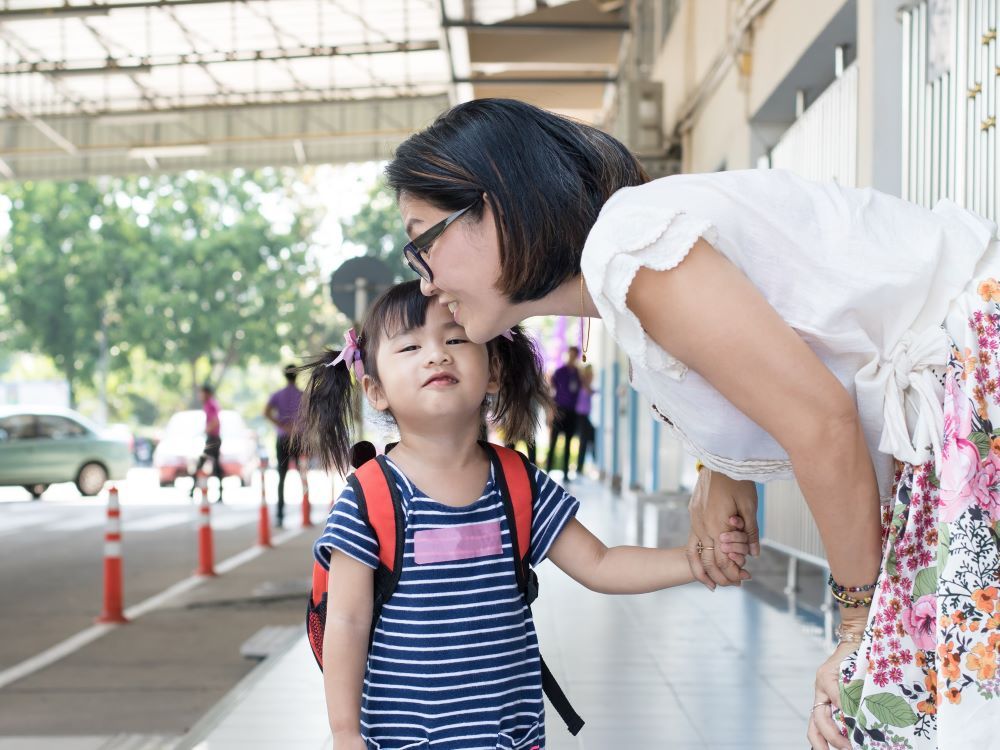This is a follow-up from our previous article: 2024 Edition Primary School Parents' Guide to a Head Start.
The primary school year has officially started - here’s what parents should expect, sorted into individual years.
Our team has also distilled the major challenges down into key takeaways that can guide your plans for your child.
We hope that this article can help you navigate your child’s primary school journey!
For P1: Acclimatizing to a new learning environment by building positive habits
It’s finally here: your child has graduated from Kindergarten and officially begun their primary school journey. You play an integral role in helping your child gain the confidence as they start a new phase of adaptation.
It is important to acknowledge how stressful this can be for both you and your child. Shift your focus to helping your child get used to a new social and physical environment.
Examples of new tasks for your P1 child includes: Getting up early in the morning, finding directions within the school compound, and packing their school bags.
In the early years (i.e. Primary 1 and Primary 2), parents should also note that there are no year-end examinations.
Key takeaways for Primary One - Managing your own parental anxieties, fostering positivity and establishing positive routines.
P2: Understanding your child’s progress
With their first taste of a full-length examination still a year and more away, parents often wonder how their child is doing in school academically. Infrequent touchpoints with teachers (due to class size ratios) and minimal homework add to this sentiment.
Integrating a new learning tool into your child’s routine could help in giving you a better grasp of your child’s academic progress.
Alternatively, you can focus on other forms of feedback provided by the school, which could include project work or in-class participation, to gauge progress.
Of course, don’t neglect other key areas of school life such as socio-emotional development. Spend time finding out what your child does during recess and the topics or activities they engage in with their peers.
Key takeaways for Primary Two - Work with teachers and pay attention to your child’s school work, make sure they are well-acclimated to school life.
P3: Preparing for Science, exams, and CCAs
Primary 3 marks a period of new challenges. Children embark on learning Science as a new subject, introducing them to basic concepts of the natural and physical world. Science also involves the application of these content to answer context-specific questions.
This year is also significant as it might be the first time students face formal assessments (Continual Assessments) rather than formal year-end exams. The GEP selection test also occurs at this grade.
Additionally, children are encouraged to participate in Co-Curricular Activities, which include sports, music, and other interests, contributing to their holistic development or DSA application if applicable.
Key takeaways for Primary Three - Be supportive about increased demands from school, ensure that your child is engaged, and begin exploring alternative pathways like DSA.
P4: An increase in school demands based on P3 and P4 content
Students will see an increase in their cognitive load because End-of-year exams in Primary 4 are designed to reinforce the syllabus from the past 2 years.
The newly introduced Subject-based Banding will also be implemented by the end of Primary 4. You and your child will have to officially indicate their preferred subject combinations.
In this year, students should continue pursuing CCA commitments and doubling down on developmental opportunities such as leadership roles or prefectorial duties. Having a foundation of strong study habits will be extremely helpful at this juncture.
This is where the awareness of goings-on in your child’s school will help with enabling you to provide the right type of support. Being familiar with educational policies can also help you in guiding your child through the final leg of their Primary School journey.
Key takeaways for Primary Four - Familiarise yourself with topics like Subject-based Banding and DSA, encourage your child to pursue their interests and challenge themselves in areas they are inclined towards.
P5: PSLE preparation
Primary 5 is a crucial year in the Singaporean Primary School education system, often seen as a precursor to the Primary School Leaving Examination (PSLE) in Primary 6.
This year is marked by a significant increase in workload and stress, with a focus on preparing students for the rigor of the PSLE. School activities like camps, national day previews, CCAs, and competitions add to a student’s workload.
Expect some type of decrease in test scores during this period, due to a higher frequency and more in-depth assessment regime. Seek out academic resources like tuition enrichment classes and spend more time in areas where you can support (i.e. creating a conducive study environment, being there for them physically).
Parents should be aware of the heightened activity and support their children through effective study habits, time management, and emotional support.
Key takeaways for Primary Five - Be aware of the increased stressors for your child, and provide them with a positive environment as they attempt to manage their workload.
P6: PSLE Year
The Primary School Leaving Examination (PSLE) is a significant milestone in the Singaporean education system, marking the end of primary school.
It's important for parents to help their children prepare effectively for this exam, which includes understanding the subjects, mastery, and scoring system of the PSLE.
Do note that the syllabus will be fully covered by April, and May to September will be when PSLE preparation / Prelims occur.
Also, it is the culmination of several years of hard work, preparation, and effort. Do take breaks and balance between studying and enjoying the process - don’t lose sight of the fun of learning!
Key takeaways for Primary Six - Aside from encouraging academic practice, you should also provide moral and emotional support in critical periods of the PSLE year.







